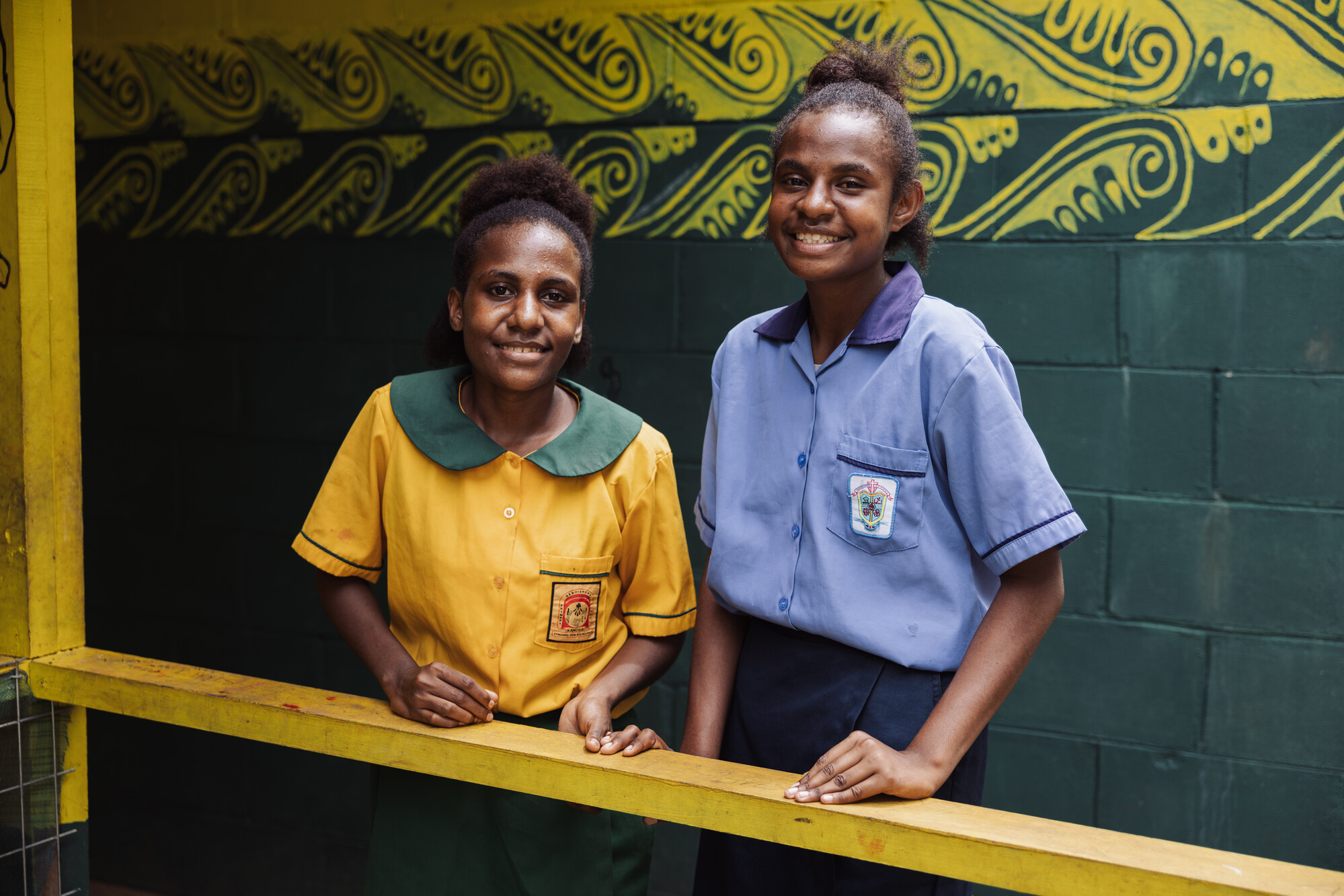Pacific Women and Girls at Risk as Climate Change Deepens Menstrual Hygiene Crisis
WaterAid Australia

New WaterAid report reveals urgent need for menstrual health to be included in climate action.
May 28th is Menstrual Hygiene Day, and WaterAid Australia is calling for menstrual health to be recognised as a climate justice issue. This follows new research revealing the worsening impacts of climate change on women and girls in the Pacific.
A scoping report by WaterAid Australia and The Pacific Menstrual Health Network highlights how extreme weather events, rising costs and patriarchal systems are deepening gender inequality and making it harder for women, girls and gender-diverse people to manage menstruation safely and with dignity.
Nalini Singh, Executive Director of Fiji Women’s Rights Movement and member of the Pacific Menstrual Health Network, said:
"When a cyclone hits, our needs don’t disappear — they multiply. Managing periods becomes almost impossible without access to products, privacy, or dignity. Menstrual health must be included in disaster planning and embedded in all public health and disaster risk reduction policies and laws"
Interview participants across the Pacific reported that evacuation centres often lack the privacy, safety and water, sanitation and hygiene (WASH) facilities needed to manage menstruation.
Marginalised groups, such as people living with disabilities, rural communities and LGBTQIA+ individuals, face even greater barriers during climate emergencies, including a lack of access to menstrual products, dignity kits and inclusive health services.
WaterAid Australia’s Director of Policy and Programs, Meredith Hickman, said periods don’t stop during extreme weather events, but the ability to manage them often does.
“In the Pacific, climate change is compounding existing inequalities and pushing menstrual health further down the priority list during disasters. This is a public health and human rights issue.
We need to ensure that every person who menstruates—regardless of where they live, how they identify, or their ability—can do so safely and with dignity, even in the face of the climate crisis.”
Health systems in the Pacific are already under strain, and climate disasters are making it worse. Interviewees shared that remote clinics often run out of essential supplies, forcing women to delay or skip care for menstrual pain and disorders.
“When nursing stations run out of medication, it shuts down... that's during normal times, irrespective of whether there’s a disaster or not,” said one woman interviewed.
Despite these risks, menstrual health remains deprioritised in disaster response and climate policy. Participants noted that the government and humanitarian focus rarely extends to issues like period pain, menstrual hygiene or menopause.
Cultural and religious taboos around menstruation continue to reinforce shame and limit open conversations in communities across the Pacific. Participants described women being excluded from decision-making spaces, while also carrying the burden of caregiving during climate crises.
Despite limited policy support, grassroots and local organisations are leading efforts to raise awareness and shift harmful norms.
Community-led events and inclusive programs led by organisations of persons with disabilities (OPDs) are helping empower young women and marginalised menstruators.
WaterAid is urging governments, donors and humanitarian organisations to recognise menstrual health as essential to gender equality and climate resilience. The WASH organisation is calling for:
- Menstrual health to be integrated into climate action plans and policies
- Sustained support for grassroots and community-led initiatives
- Inclusive research and data collection that reflects diverse menstruators’ needs
- Investment in WASH infrastructure and menstrual product access in schools and emergency settings
- Stigma-ending education to shift harmful norms and taboos
-ENDS-
Key Facts:
· 703 million people in the world – almost one in ten – don’t have clean water close to home.1
· 2.2 billion people in the world – more than one in four – don’t have safe water.1
· Almost 2 billion people in the world – one in four – lack soap and/or water to wash their hands at home, if they have a place at all.1
· 1.5 billion people in the world – almost one in five – don’t have a decent toilet of their own.1
· 570 million people in the world – 1 in 14 – have a decent toilet but have to share it with people outside their family. This compromises the privacy, dignity and safety of women and girls.2
· Almost 400,000 children under five die every year due to diseases caused by unsafe water, sanitation and hygiene. That's more than 1000 children a day, or almost one child every one and a half minutes.2
· Investing in safely managed water, sanitation and hygiene services provides up to 21 times more value than it costs.3
About us:
WaterAid
WaterAid is an international not-for-profit determined to make clean water, decent toilets and good hygiene normal for everyone, everywhere within a generation. We work alongside communities in 22 countries to secure these three essentials that transform people’s lives. Since 1981, WaterAid has reached 28 million people with clean water and nearly 29 million people with decent toilets.
To find out more visit www.wateraid.org.au follow @wateraidaustralia on Instagram, @WaterAidAus on Twitter, or find WaterAid Australia on Facebook at www.facebook.com/wateraidaustralia
Contact details:
For more information, please contact:
Tegan Dunne, Communications Manager, WaterAid Australia, [email protected]
0415 714 589

